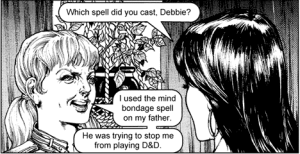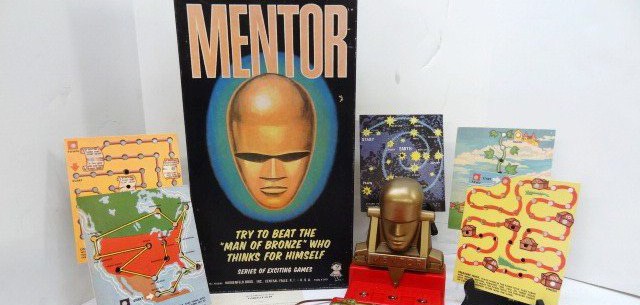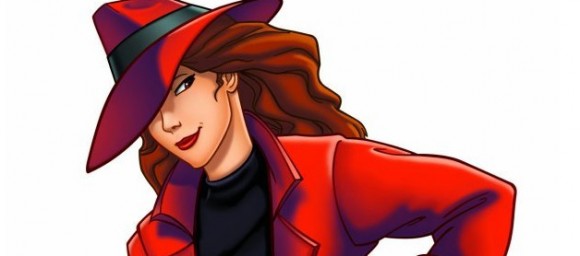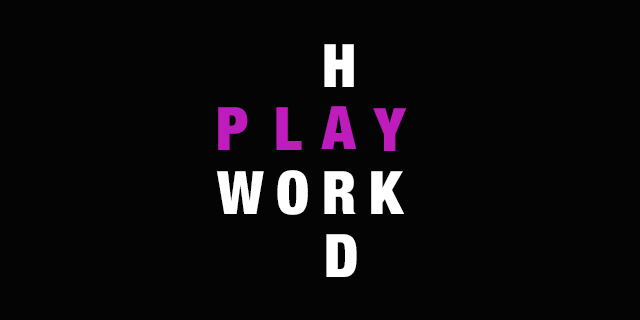It’s hard for me not to get into the Halloween spirit. In addition to being a huge fan of dressing up in costumes and consuming vast quantities of sugar, Halloween is my birthday, and that adds a whole new dimension of fun and mayhem to the holiday. My sophomore year of college I started hanging out with some friends who I’d met through the campus Society for Creative Anachronism, and we all discovered a mutual love of the fantasy genre. One of the ways we expressed this love was through playing Dungeons and Dragons.
I had never played D&D until my freshman year, when the guy I was dating introduced me to the land of monsters, magic, twenty-sided dice, and recreational math. As a long time fan of fantasy, spending an afternoon at a table pretending to be an elf was the ideal way to spend my spare time. As my birthday approached, my friends and I started putting together a plan for a party that would also be a massive gaming event, gathering a bunch of us together in my parents’ basement to eat pizza, drink mountain dew, play Mario Kart, and run D&D games for each other. 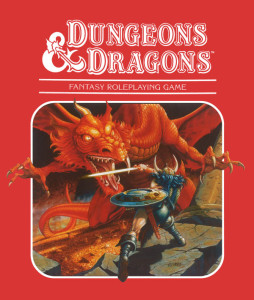
When I went to my parents to ask for the use of their basement, they were leery. They’d heard of Dungeons and Dragons, but they knew very little about it, and when parents hear ‘party’ coming out of the mouth of their almost twenty year old child, a certain image comes to mind, and the image is of kegs of beer and grinding on a makeshift dance floor to music consisting mostly of oomph tiss sounds. Their view shifted dramatically when they came down to the basement to discover two of my friends having a contest to see how much cranberry juice they could chug.
Not the wild party attitude you expect from college kids.
I wasn’t the only one to experience reticence from their parents about participating in D&D, and as the years went by I even met people who had been straight up forbidden from playing. I was stunned. The only danger I had ever faced from D&D was sleep deprivation and drinking too much caffeine. When I asked one of my friends why people’s parents might not want them to play the game, he directed me to a website that featured a comic published in the eighties, created by Jack Chick, called Dark Dungeons.
Chick’s work comes to mind this weekend not just because of the connection to the game I used to play with my friends on my birthday. This year on October 23rd, Jack Chick passed away at the age of 92, leaving behind a legacy that some would call a coup for Christian Evangelism. His comics, traditionally printed in little booklets and distributed around college campuses and Christian communities, were designed to show the consequences of engaging in worldly pleasures that went against the teachings of his particular sect of Christianity.
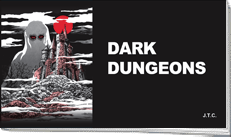
Dark Dungeons was my first encounter with Chick’s work, and at the time it was something I found comical, especially considering my own experiences playing D&D. Chick’s infamous piece on the game tells the story of a young woman who is seduced by the dark forces she is taught to summon through playing with her friends. After another player commits suicide over events that transpired in their game, she realizes the error of her ways and turns to friends who help her repent her sins. The comic circulated heavily in the eighties and became a meme with the advent of the internet, a joke shared between regular D&D players about how their weekly meetings with bags of dice and sheets of paper were clearly designed for the summoning of dark forces.
Chick tracts showed up in other aspects of my life as I continued with my undergraduate education. Campus preachers would sometimes distribute them in front of the Student Union while reminding us to repent from our wicked ways, ways we were no doubt engaged in being students on a college campus. The vast majority of these interactions didn’t affect me much at first, but the older I grew and the more I began to figure out my sexuality, the more the presence of this material upset me.
Playing Dungeons and Dragons has helped me make lifelong friends. In the decade I’ve been participating in various games and sessions I’ve become a happier person, a better storyteller, and a lover of games of all kinds. While video games occupy a large swathe of my free time, the true way in which I consider myself a ‘gamer’ stems from the nights I spent staying up until six A.M. battling ghouls and evil wizards to save the world, the hours I’d put into designing the perfect encounter to thrill and amaze the friends I was acting as Dungeon Master for. D&D is the reason I can’t listen to Hungarian folk music without tensing up and looking for zombies to try to slay. Even now living in Indiana and working on my PhD, my friends back in Alabama still play regularly. Their DM lives in New York, but he Skypes in and uses mapping programs to run sessions virtually. 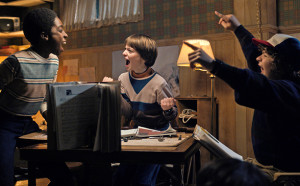
D&D never truly went out of vogue, but the game has made an appearance in recent television works, the kids in Stranger Things being avid players. New editions get released regularly, groups get put together at boardgame stores and through online channels. D&D fosters teamwork, creativity, problem-solving, and camaraderie.
It’s also a game that features narratives about magic, wizards, fantastical creatures, and polytheistic mythologies. While there isn’t anything inherently immoral or dangerous about these things to most outward observers, Jack Chick contributed to a culture that condemned them, associating them with other things considered inherently unchristian. Scott Benson recently wrote a series of tweets sharing his experience growing up in Chick Tract culture and the way it affected him. Jack Chick wrote about more than just the way games like D&D can lead teenagers astray, his catalog of works was prolific and dripping with fear and resentment. Feminism was painted as a plot to ruin families, gay men were portrayed as child molesters who worked to actively spread AIDs, and the government was secular and therefore not to be trusted.
Chick’s work was far from unique. His voice was one of many that contributed to this culture of fear, present in the music and movies and books circulated among families, passed down to children. Adherence to a status quo was essential, lest people went the way of the poor protagonists of each tract: taken suddenly from the mortal realm and judged for a list of egregious sins. The list is impossibly long.
This past Friday I got a message from a close friend of mine. She’s been closeted transgender for a while now, and every time we talk she tells me she’s terrified to come out to her conservative parents, fully expecting them to disown her. She had just gotten back from visiting her girlfriend in Texas and upon return had been greeted with an ultimatum from her parents. They felt that their ‘son’ visiting ‘his’ girlfriend meant that they were engaging in unacceptable behaviors and that it was a bad example to set for younger siblings. Her fears about being disowned were suddenly justified, but they had come before she could even manage to tell them the truth about her identity.
My friend got disowned just for going to visit someone she loved in another state.
I’m not here to condemn anyone of a particular faith. Fearmongering and hypocrisy are hardly exclusive to any religion or culture. I’m reflecting on a culture that takes positive experiences and twists them, that fosters a sense of panic and paranoia over something as simple as a pen and paper dice game. That makes young people, queer or otherwise, feel ashamed about the things and the people they love.
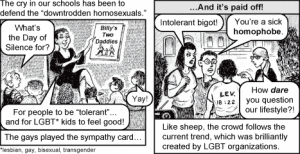
Jack Chick is dead, but his work remains. Young people will continue to feel the consequences of his tracts for years to come, and some of it will contribute to a culture that sees disowning your children as acceptable. A simple game will continue to be seen as a tool for satanic conversion or seditious thought. Paranoia continues. Culture takes root. The kids who grew up reading Chick Tracts pass the ideas along to their kids in turn.
It’s common to see games portrayed as dangerous, as bad influences on children that encourage them to be violent or to stray from a path of righteousness. Games are just games. The dice and paper facilitate attitudes, they don’t spawn them. D&D isn’t dangerous. Neither is love. Neither is friendship.
It’s a shame Mister Chick never figured that out.

